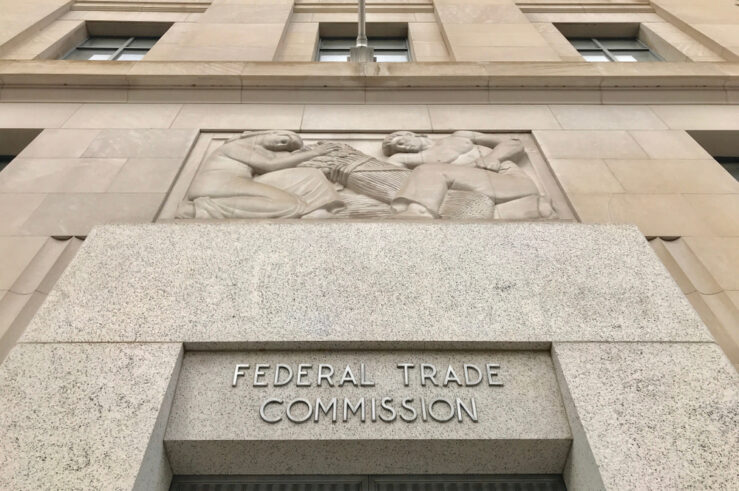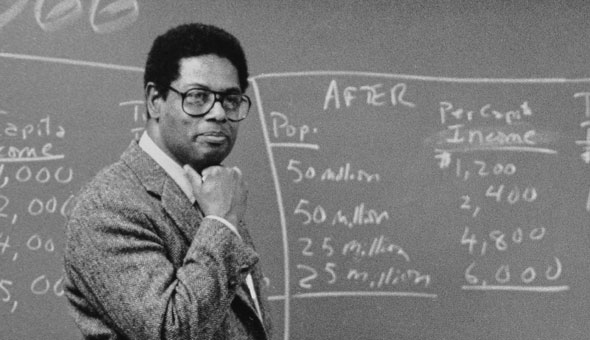Showing archive for: “Labor & Monopsony”
The FTC’s Noncompete Rule: Shouldn’t Doesn’t Mean Can’t, but Maybe It Should
Former U.S. Labor Secretary Gene Scalia games out the future of the Federal Trade Commission’s (FTC) recently proposed rule that would ban the use of most noncompete clauses in today’s Wall Street Journal. He writes that: The Federal Trade Commission’s ban on noncompete agreements may be the most audacious federal rule ever proposed. If finalized, ... The FTC’s Noncompete Rule: Shouldn’t Doesn’t Mean Can’t, but Maybe It Should
Biweekly FTC Roundup: Highly Skilled Sandwich Maker Edition
Happy New Year? Right, Happy New Year! The big news from the Federal Trade Commission (FTC) is all about noncompetes. From what were once the realms of labor and contract law, noncompetes are terms in employment contracts that limit in various ways the ability of an employee to work at a competing firm after separation ... Biweekly FTC Roundup: Highly Skilled Sandwich Maker Edition
The FTC’s NPRM on Noncompete Clauses: Flirting with Institutional Crisis
The Federal Trade Commission’s (FTC) Jan. 5 “Notice of Proposed Rulemaking on Non-Compete Clauses” (NPRMNCC) is the first substantive FTC Act Section 6(g) “unfair methods of competition” rulemaking initiative following the release of the FTC’s November 2022 Section 5 Unfair Methods of Competition Policy Statement. Any final rule based on the NPRMNCC stands virtually no ... The FTC’s NPRM on Noncompete Clauses: Flirting with Institutional Crisis
Knowledge, Decisions, and Noncompetes
One of my favorite books is Thomas Sowell’s Knowledge and Decisions, in which he builds on Friedrich Hayek’s insight that knowledge is dispersed throughout society. Hayek’s insight that markets can bring dispersed but important knowledge to bear with substantial effectiveness is one that many of us, especially economists, pay lip service to, but it often ... Knowledge, Decisions, and Noncompetes
FTC Proposes Rule Deeming Non-Compete Clauses to be Unfair Methods of Competition
On Jan. 5, 2023, the Federal Trade Commission (FTC) issued a Notice of Proposed Rulemaking (NPRM) to prohibit employers from entering non-compete clauses with workers.[1] The proposed rule would extend to all workers, whether paid or unpaid, and would require companies to rescind existing non-compete agreements within 180 days of publication of the final rule.[2] ... FTC Proposes Rule Deeming Non-Compete Clauses to be Unfair Methods of Competition
The End of Reason at the FTC
In a 3-2 July 2021 vote, the Federal Trade Commission (FTC) rescinded the nuanced statement it had issued in 2015 concerning the scope of unfair methods of competition under Section 5 of the FTC Act. At the same time, the FTC rejected the applicability of the balancing test set forth in the rule of reason ... The End of Reason at the FTC
FTC Biweekly UMC Roundup – Mountain of Puffery Edition
Research still matters, so I recommend video from the Federal Trade Commission’s 15th Annual Microeconomics Conference, if you’ve not already seen it. It’s a valuable event, and it’s part of the FTC’s still important statutory-research mission. It also reminds me that the FTC’s excellent, if somewhat diminished, Bureau of Economics still has no director; Marta ... FTC Biweekly UMC Roundup – Mountain of Puffery Edition
FTC Biweekly UMC Roundup – Refugee from the FTC Edition
Faithful and even occasional readers of this roundup might have noticed a certain temporal discontinuity between the last post and this one. The inimitable Gus Hurwitz has passed the scrivener’s pen to me, a recent refugee from the Federal Trade Commission (FTC), and the roundup is back in business. Any errors going forward are mine. ... FTC Biweekly UMC Roundup – Refugee from the FTC Edition
FTC on the Gig Economy: The Glass is Almost Empty
The business press generally describes the gig economy that has sprung up around digital platforms like Uber and TaskRabbit as a beneficial phenomenon, “a glass that is almost full.” The gig economy “is an economy that operates flexibly, involving the exchange of labor and resources through digital platforms that actively facilitate buyer and seller matching.” ... FTC on the Gig Economy: The Glass is Almost Empty
Three Big Pitfalls in the Way of Lina Khan’s Agenda
In a recent op-ed for the Wall Street Journal, Svetlana Gans and Eugene Scalia look at three potential traps the Federal Trade Commission (FTC) could trigger if it pursues the aggressive rulemaking agenda many have long been expecting. From their opening: FTC Chairman Lina Khan has Rooseveltian ambitions for the agency. … Within weeks the FTC is ... Three Big Pitfalls in the Way of Lina Khan’s Agenda
AICOA Is Neither Urgently Needed Nor Good: A Response to Professors Scott Morton, Salop, and Dinielli
Earlier this month, Professors Fiona Scott Morton, Steve Salop, and David Dinielli penned a letter expressing their “strong support” for the proposed American Innovation and Choice Online Act (AICOA). In the letter, the professors address criticisms of AICOA and urge its approval, despite possible imperfections. “Perhaps this bill could be made better if we lived in ... AICOA Is Neither Urgently Needed Nor Good: A Response to Professors Scott Morton, Salop, and Dinielli
The Cracked Mirror of Monopoly-Monopsony Symmetry
Slow wage growth and rising inequality over the past few decades have pushed economists more and more toward the study of monopsony power—particularly firms’ monopsony power over workers. Antitrust policy has taken notice. For example, when the Federal Trade Commission (FTC) and U.S. Justice Department (DOJ) initiated the process of updating their merger guidelines, their ... The Cracked Mirror of Monopoly-Monopsony Symmetry
















